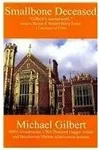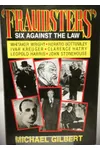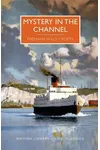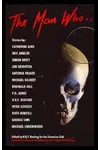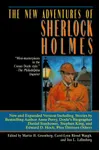Picture a British storyteller who spun tales of suspense and wit while commuting by train—meet Michael Gilbert! Born in 1912, this versatile mystery writer crafted intricate plots that blended humor, legal savvy, and a sharp eye for human nature. From his acclaimed Smallbone Deceased to spy thrillers, Gilbert’s stories continue to captivate readers with their clever twists and timeless charm.
The Making of Michael Gilbert
Michael Francis Gilbert was born on July 17, 1912, in Billinghay, Lincolnshire, to a writer father and a journalist mother. Educated at Blundell’s School and London University, he faced financial hurdles but earned a law degree with honors in 1937. His early career included teaching at Salisbury Cathedral School, where he began penning his debut novel, Close Quarters. World War II saw Gilbert serve in the Royal Horse Artillery, surviving capture in Italy, an experience that later fueled his gripping Death in Captivity.
After the war, Gilbert balanced a thriving legal career at Lincoln’s Inn—where he advised clients like Raymond Chandler—with his passion for writing. A founding member of the British Crime Writers’ Association, he wrote during his daily train commute, producing 500 words each morning in the lively bustle of the carriage.
Michael Gilbert’s Unforgettable Stories
Gilbert’s bibliography spans 30 novels and over 180 short stories, showcasing his versatility across police procedurals, spy novels, and courtroom dramas. His 1950 classic, Smallbone Deceased, a witty whodunit set in a London law firm, earned praise from critic H.R.F. Keating as rivaling Agatha Christie’s best. The novel’s ingenious plot, centered on a body found in a deed box, highlights Gilbert’s knack for blending legal detail with playful humor.
Other gems include Death in Captivity (1952), a tense mystery set in a POW camp, and The Night of the Twelfth (1976), a chilling blend of police procedural and psychological thriller exploring sadistic cruelty. The Crack in the Teacup (1966) tackles municipal corruption with a light touch, while The Ninety-Second Tiger (1973) ventures into adventure with a TV hero in a mythical Middle Eastern kingdom. Gilbert’s lean prose, dry wit, and refusal to rely on a single recurring character kept his work fresh and unpredictable.
His stories often carried subtle social commentary, addressing justice, corruption, and human flaws without heavy-handed moralizing. This balance, paired with meticulous plotting, made his work both entertaining and thought-provoking, appealing to fans of Golden Age mysteries and modern thrillers alike.
Why Michael Gilbert Matters
Michael Gilbert’s influence endures through his ability to bridge classic detective fiction with modern crime narratives. Honored as a Grand Master by the Mystery Writers of America in 1988 and awarded the CWA Cartier Diamond Dagger in 1994, he was knighted as a Commander of the British Empire in 1980. His legal expertise and wartime experiences lent authenticity to his tales, while his subtle commentary on society added depth.
Though not a household name, Gilbert’s work inspired writers and delighted readers on both sides of the Atlantic. His stories, reissued by the British Library Crime Classics series, continue to attract new fans, proving that a well-told mystery never fades. His commuting writing habit also remains a charming testament to his discipline and creativity.
- Born: July 17, 1912, Billinghay, Lincolnshire
- Key Works: Smallbone Deceased, Death in Captivity, The Night of the Twelfth
- Awards: Grand Master (1988), CWA Cartier Diamond Dagger (1994), CBE (1980)
Snag Smallbone Deceased and dive into Michael Gilbert’s clever, suspenseful world of mysteries!



